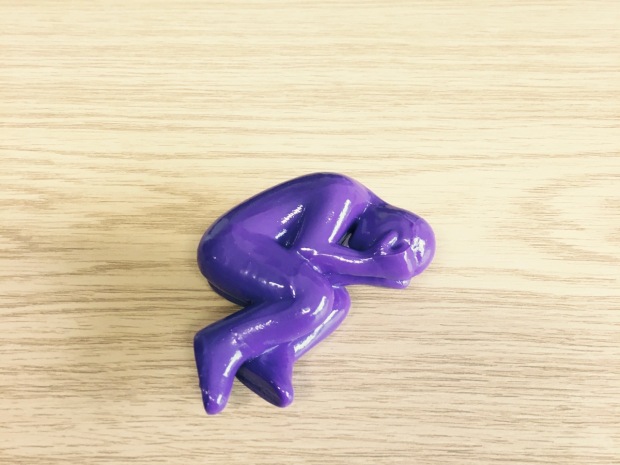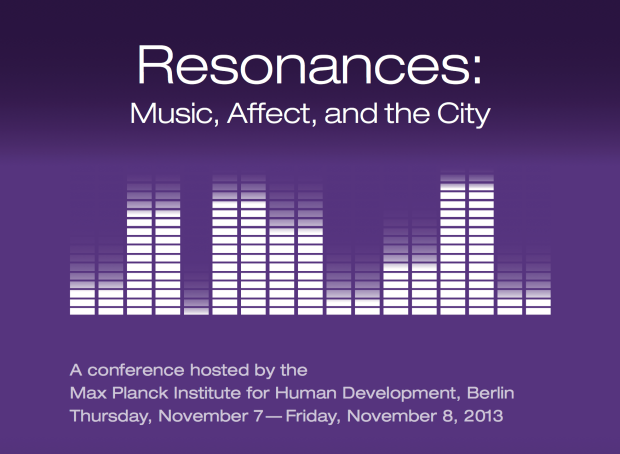
 t’s been ages since I’ve posted on here, and I’m both saddened and frustrated that it’s taken the anniversary of the Pulse Orlando massacre for me to get back to writing about these sorts of issues. The shootings at Pulse, a gay club in Orlando, Florida, USA, took place exactly one year ago, when I was working on a book manuscript about intimacy, belonging, and affect on the (electronic music) dancefloor. As the summer went on and the shockwaves from the attack continued to reverberate within queer Latinx/QTPoC, I found myself writing a very different epilogue to the book than I had planned. I’m still putting the finishing touches on the manuscript, but I thought I would share an excerpt from the epilogue, which recounts the aftermath of the Pulse shooting and begins to reflect on what that might mean for queer public intimacy, shared risk/trauma, and historiography.
t’s been ages since I’ve posted on here, and I’m both saddened and frustrated that it’s taken the anniversary of the Pulse Orlando massacre for me to get back to writing about these sorts of issues. The shootings at Pulse, a gay club in Orlando, Florida, USA, took place exactly one year ago, when I was working on a book manuscript about intimacy, belonging, and affect on the (electronic music) dancefloor. As the summer went on and the shockwaves from the attack continued to reverberate within queer Latinx/QTPoC, I found myself writing a very different epilogue to the book than I had planned. I’m still putting the finishing touches on the manuscript, but I thought I would share an excerpt from the epilogue, which recounts the aftermath of the Pulse shooting and begins to reflect on what that might mean for queer public intimacy, shared risk/trauma, and historiography.
I learned of the Orlando massacre right after returning home to Birmingham after a week spent teaching at a summer school in Prague. After the plane landed (more…)

 ast week, I organized a two-day conference here in Berlin, which took the affective dimensions of urban soundscapes as its central theme. Running November 7th–8th at the
ast week, I organized a two-day conference here in Berlin, which took the affective dimensions of urban soundscapes as its central theme. Running November 7th–8th at the 
 a Mission has been a big part of my life here in Berlin since last summer, but strangely enough it’s taken me nearly a year to get around to writing about it on this blog. Maybe I wanted to wait until the first round of multimedia craziness emerged from this performance art collective / music label / magazine, before I started crowing about it. Maybe I was too shy about discussing my own creative work. No, wait…I remember why: I was on the academic job market last fall, which meant that I got nothing else done.
a Mission has been a big part of my life here in Berlin since last summer, but strangely enough it’s taken me nearly a year to get around to writing about it on this blog. Maybe I wanted to wait until the first round of multimedia craziness emerged from this performance art collective / music label / magazine, before I started crowing about it. Maybe I was too shy about discussing my own creative work. No, wait…I remember why: I was on the academic job market last fall, which meant that I got nothing else done.
 eyond Germany’s borders, the debates over GEMA and its new tarif system rarely get much coverage, only spawning the occasional under-researched, “Will Berlin’s Nightclubs Perish?” sort of articles in the foreign press. But Berlin is an increasingly international city full of expatriates—many of them “creative” workers that have personal and professional links into the local music scenes here—and some of them have been blogging about this issue in their own language, explaining the issue to readers in their countries of origin while also informing their fellow expatriates in Berlin. I’ve been up to a bit of that myself in English, writing on
eyond Germany’s borders, the debates over GEMA and its new tarif system rarely get much coverage, only spawning the occasional under-researched, “Will Berlin’s Nightclubs Perish?” sort of articles in the foreign press. But Berlin is an increasingly international city full of expatriates—many of them “creative” workers that have personal and professional links into the local music scenes here—and some of them have been blogging about this issue in their own language, explaining the issue to readers in their countries of origin while also informing their fellow expatriates in Berlin. I’ve been up to a bit of that myself in English, writing on 
 y Berlin research files are organized under a number of folders, including one for “Tourism Debates” and another one for “Gentrification Debates.” These days, I’m thinking I need to merge these two folders, since the debates have become increasingly intertwined (and often hopelessly confused). In a recent opinion article in Die Zeit online, entitled, “
y Berlin research files are organized under a number of folders, including one for “Tourism Debates” and another one for “Gentrification Debates.” These days, I’m thinking I need to merge these two folders, since the debates have become increasingly intertwined (and often hopelessly confused). In a recent opinion article in Die Zeit online, entitled, “
 esterday, there was yet another anti-
esterday, there was yet another anti-
 ast Sunday, Süddeutsche Zeitung’s bloggy online stepchild
ast Sunday, Süddeutsche Zeitung’s bloggy online stepchild 
 couple of months ago, the magazine Zitty Berlin posted an online article entitled,
couple of months ago, the magazine Zitty Berlin posted an online article entitled, 
 ecently, there’s been some more news on the
ecently, there’s been some more news on the 
 usicboard is a cultural policy and funding initiative created by Berlin’s municipal government, with the stated goals of supporting the city’s music industry, presumably in a way similar to Berlin’s
usicboard is a cultural policy and funding initiative created by Berlin’s municipal government, with the stated goals of supporting the city’s music industry, presumably in a way similar to Berlin’s